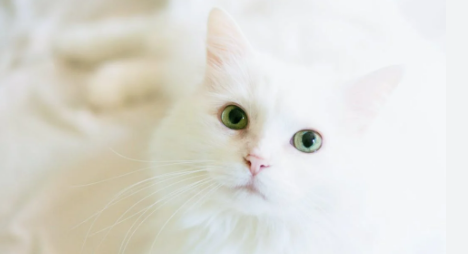Choosing the perfect name for your feline friend is a delightful yet significant task. Classical cat names hold a special allure, embodying timeless elegance, historical significance, and cultural richness. These names not only reflect the majestic and mysterious nature of cats but also imbue them with a sense of nobility and sophistication. Whether derived from ancient mythology, classical literature, historical figures, or vintage trends, classical cat names offer a plethora of choices that can suit every personality and preference. In this comprehensive guide, we delve into the fascinating world of classical cat names, exploring their origins, meanings, and the charm they bring to our beloved pets.

The Historical and Cultural Significance of Classical Cat Names
Ancient Egyptian Influence
The ancient Egyptians revered cats, associating them with the goddess Bastet, the deity of home, fertility, and childbirth. Names such as Bastet, Ra, and Anubis evoke the mystical aura of ancient Egypt, offering a touch of divine grandeur to your feline companion.
Greek and Roman Mythology
Greek and Roman mythology provide a treasure trove of names with rich stories and powerful connotations. Names like Athena, Apollo, Zeus, and Hercules not only carry mythological significance but also exude strength, wisdom, and majesty.
Medieval and Renaissance Europe
During the Medieval and Renaissance periods, cats were both feared and revered. Names from this era, such as Guinevere, Arthur, Merlin, and Isolde, bring a sense of chivalry, magic, and romanticism, perfect for cats with a regal demeanor.
Victorian Era and Literary Classics
The Victorian era and classical literature are rich sources for elegant and distinguished names. Think of names like Victoria, Darcy, Elizabeth, and Sherlock. These names are timeless and carry an air of sophistication and intellectual charm.
Exploring Classical Cat Names: Categories and Meanings
Mythological Names
- Athena: The Greek goddess of wisdom and war, symbolizing intelligence and strength.
- Apollo: The Greek god of the sun, music, and poetry, embodying beauty and creativity.
- Diana: The Roman goddess of the hunt and moon, representing independence and grace.
Historical Figures
- Cleopatra: The last pharaoh of Egypt, known for her beauty and intelligence.
- Caesar: A title used by Roman emperors, signifying leadership and power.
- Joan: Inspired by Joan of Arc, symbolizing bravery and determination.
Literary and Artistic Inspirations
- Shakespeare: After the renowned playwright, perfect for a cat with a dramatic flair.
- Bronte: Inspired by the Bronte sisters, ideal for a literary-minded feline.
- Leonardo: After Leonardo da Vinci, signifying creativity and genius.
Regal and Noble Names
- Victoria: After Queen Victoria, symbolizing elegance and authority.
- Arthur: The legendary king of Camelot, representing nobility and heroism.
- Isabella: A name of several queens, denoting grace and power.
Exotic and Uncommon Names
- Anubis: The ancient Egyptian god of the afterlife, perfect for a mysterious cat.
- Thalia: One of the Greek Muses, representing comedy and idyllic poetry.
- Lysander: A name from Shakespeare’s “A Midsummer Night’s Dream,” ideal for a whimsical cat.
Choosing the Perfect Name for Your Cat
Consider Your Cat’s Personality
When choosing a classical name for your cat, consider their personality traits. A playful and energetic cat might suit a name like Hercules or Apollo, while a serene and wise feline could be named Athena or Socrates.
Reflect on Your Interests
Your interests and hobbies can also guide your choice. Literature enthusiasts might opt for names like Darcy or Jane (after Jane Austen), while history buffs might prefer Cleopatra or Napoleon.
Think About the Sound and Ease of Use
Choose a name that is easy to pronounce and call out. Names with a pleasing sound, like Luna or Milo, can be both practical and charming.
Classical Cat Names and Their Meanings
| Name | Origin | Meaning |
|---|---|---|
| Athena | Greek Mythology | Goddess of wisdom and war |
| Apollo | Greek Mythology | God of the sun, music, and poetry |
| Cleopatra | Egyptian History | Last pharaoh of Egypt, known for beauty |
| Victoria | Victorian Era | Queen Victoria, symbolizing elegance |
| Arthur | Medieval Legend | Legendary king of Camelot |
| Shakespeare | Literature | Renowned playwright |
| Joan | Historical | Joan of Arc, symbolizing bravery |
| Leonardo | Art | Leonardo da Vinci, symbolizing genius |
| Anubis | Egyptian Myth | God of the afterlife, symbolizing mystery |
| Thalia | Greek Mythology | One of the Muses, representing comedy |
The Impact of Classical Names on Cat Behavior
Some believe that the names we give our pets can influence their behavior. A cat named Athena might exhibit a wise and observant demeanor, while a cat named Hercules could be more adventurous and bold. While there is no scientific evidence to support this, many pet owners enjoy the idea that their cat’s name reflects their personality.
Stories and Anecdotes of Famous Cats with Classical Names
Hemingway’s Polydactyl Cats
Ernest Hemingway, the famous author, was known for his love of cats. His home in Key West, Florida, was a haven for polydactyl cats, many of which had classical names such as Ariadne and Perseus. These names added a touch of literary charm to the already fascinating history of Hemingway’s cats.
T.S. Eliot’s Cat Naming Conventions
T.S. Eliot, in his famous book “Old Possum’s Book of Practical Cats,” provided a whimsical guide to naming cats, suggesting that they have three names: an everyday name, a more dignified name, and a unique name known only to the cat. Eliot’s own cats had names like Wensleydale and George Pushdragon, showcasing his playful approach to classical and whimsical naming.
The Modern Appeal of Classical Cat Names
Timelessness and Elegance
Classical names never go out of style. They carry a sense of history and culture that modern names often lack. Choosing a classical name for your cat can give them an air of timeless elegance that suits their graceful and enigmatic nature.
Cultural and Historical Connection
Using classical names connects your cat to a rich tapestry of history and mythology. It can also spark interesting conversations with fellow pet owners and enthusiasts who share a love for history and literature.
Unique and Memorable
Classical names are often unique and stand out in a crowd. They make your cat memorable and distinctive, reflecting their one-of-a-kind personality and charm.
How to Train Your Cat to Respond to Their Name
Start Early
Begin training your cat to respond to their name as early as possible. Use their name consistently during positive interactions, such as feeding and playtime.
Use Positive Reinforcement
Reward your cat with treats, affection, or playtime when they respond to their name. This reinforces the association between their name and positive experiences.
Be Consistent
Consistency is key. Make sure all family members use the same name and pronunciation to avoid confusing your cat.
Popular Classical Cat Names by Region
North America
- Cleopatra: A popular choice reflecting fascination with ancient Egypt.
- Victoria: Reflecting historical ties to the British monarchy.
Europe
- Arthur: Inspired by the legendary king and the Arthurian legends.
- Guinevere: A romantic and elegant choice from medieval tales.
Asia
- Anubis: Gaining popularity due to interest in Egyptian mythology.
- Athena: Valued for its association with wisdom and strategy.
Conclusion
Choosing a classical name for your cat is a delightful way to honor their unique personality and add a touch of historical and cultural significance to their identity. Whether you draw inspiration from ancient mythology, historical figures, or literary classics, these names bring a sense of timeless elegance and charm to your feline companion.
FAQs
Q1: Why should I choose a classical name for my cat?
Classical names offer timeless elegance, rich historical significance, and a unique charm that modern names often lack. They connect your cat to a vast cultural and historical heritage.
Q2: How do I choose the right classical name for my cat?
Consider your cat’s personality, your interests, and the sound of the name. Look for names that are easy to pronounce and reflect traits you admire in your cat.
Q3: Can the name I choose affect my cat’s behavior?
While there is no scientific evidence to support this, many pet owners believe that a name can reflect a cat’s personality. Choosing a name with positive connotations may influence your perception of your cat’s behavior.
Q4: Are there any famous cats with classical names?
Yes, many famous cats have had classical names. For example, Ernest Hemingway’s polydactyl cats often had names inspired by mythology and literature, such as Ariadne and Perseus.
Q5: How can I train my cat to respond to their name?
Start early, use positive reinforcement, and be consistent. Reward your cat when they respond to their name to create positive associations.
Additional Resources
- Books on Cat Names: “The Complete Book of Cat Names” by Bob Eckstein
- Websites: PetMD, The Cat Fanciers’ Association






